What Overcompensating Gets Right About College Loneliness
Celebrating pride month by making Benito Skinner’s coming out journey about me!
A few weeks ago, I binged Benito Skinner’s Amazon Prime debut Overcompensating on my laptop, curled up in my bed alone with nowhere else to be on a Saturday night. If I had succumbed to my worst instincts and ordered an entire Domino's pizza and cinnamon sticks, I would have been suspicious that Skinner’s seemingly ordinary tale about a college freshman trying to be anything but himself was actually some kind of magical portal transporting me back to 2014.
There’s something cozy in the specificity of Overcompensating. Although Skinner (a gay comedian who you might recognize for his Shawn Mendes and Kardashian impressions on TikTok) gives no indication that the story is set a decade earlier, those who were in college in the early to mid-2010s will find it strikingly familiar. Charli XCX’s “Nuclear Seasons” blasts at a campus rager. A character’s video game alter-ego is named after Lana Del Rey. Another makes a Tumblr-coded flower-crown/milk-bath short to the tune of Lorde’s “Ribs” for his film class. But it’s also accurate in its depiction of the kind of loneliness that can only be a symptom of a college dorm room: a Sublime poster taped unframed on a cinderblock wall, disgusting blue upholstery chairs and all.
From a wider lens, Overcompensating seems to retread on the ground of college tropes that have been around for decades: acapella groups harmonizing on the quad, freshmen getting wasted at wild campus parties and anxiously rushing for judgy fraternities/secret societies that haze them into oblivion. In fact the premise of Overcompensating very closely mirrors the premise of the underrated ABC Family show Greek, which premiered in 2007. Both shows center around an awkward but eager college freshman brushing up against his prickly older sister, who is immersed in the “in” crowd and reluctantly grants him access to this world via her boyfriend, the air-headed leader of some exclusive fraternity. Rusty, Greek’s central character, isn’t gay and closeted like Skinner’s Benny is, but they share a need to fit in, often at the cost of being true to themselves and loyal to the friends who really care about them.
I don’t think any of this is a bad thing. I loved Greek and, after a recent rewatch, can say that it held up pretty well for a show that aired on the same network that made us think “you’re my whore” was actually a sweet thing to say to a pregnant teenager/Shailene Woodley. But the show also existed in a moment when we were obsessed with college as a culture. Justin Long and (a pre-Gossip Girl) Blake Lively starred in the movie Accepted a year before Greek came out and two years later a movie simply titled College premiered. Its bright orange movie poster featured an adolescent Drake Bell hunched over a toilet puking. A year after that, everyone in my eighth grade class was singing along to “I Love College” by modern day poet Asher Roth, who crooned “Man, I love college (Hey!) I love drinking (Hey!) I love women (Hey!).”
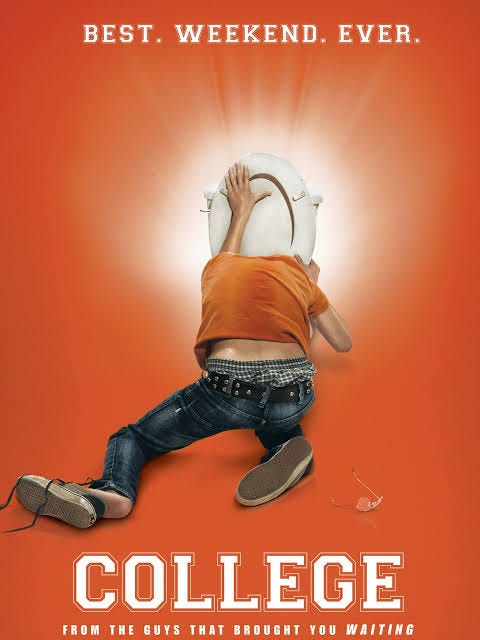
We were obsessed with the indulgence of college, the keg stands and wild sexual explorations. But I think, even more so, its allure lied in transition, a cushioned bridge to adulthood. You’re on your own, free from parental rule, but also living in a bubble separating you from the adult world’s responsibilities. It’s the perfect environment to test the boundaries of who you are, what you can get away with, who you can’t be. But at the root of all this is an extreme discomfort, like taking the training wheels off when you’re learning to ride a bike. The family unit (no matter how hectic or suffocating) you had spent your whole life inside of is all of a sudden wiped away and you have to be your own island, build your own structure, make a new family. And you’ll fail at doing all of these things, just like you’ll fall the first time you ride a bike without training wheels1. In that failure comes a rudderless isolation that can only come with freedom.
Our early aughts obsession with college often left this loneliness out of the equation. While the shows and movies depicted an anxiety that comes with testing those boundaries of adulthood, they often displayed college as a place where you’re never alone. And while Overcompensating incorporates a lot of the same wild parties, breakfasts in the dining hall and campus activities fairs, it also gives a sense of isolation in the midst of all that stimuli.
Benny has a roommate on the rowing team who only pops up in extremely inconvenient times. So his relationship with the show’s other central character Carmen becomes his lifeline. The two are pushed together on the first night of the semester. Both have other students in their ear telling them if they don’t have sex with someone on the first night of school, they’ll be doomed to a reputation of loserdom, of sparsely attended improv performances. Benny is gay, but is trying really hard not to be. He’s been overcompensating his whole life (captain of the football team, homecoming king, valedictorian) to throw everyone off the scent. It’s important for him to pass this test, to conform to the social norms, because he’s hiding not just from everyone else, but from himself, so the idea of having anyone really see him for who he is is terrifying. On the other side, Carmen, who is letting go of her high school boyfriend, feels like a nobody after her popular older brother died in a car accident a few years earlier, and she wants to change her fate. But ironically, as the two seek cover in a night one hookup, they find, in each other, a friend they can be themselves with.
The show is really a love story between Benny and Carmen, even as Benny is beginning to open up to his attraction to men. They get each other. They like the same music, laugh at the same YouTube videos and have a shared general sense of the world that allows them to be in each other’s presence without putting on a front. Finding this kind of person in college is like a lifeboat; it gives you a moment to catch your breath as you’re wading through the choppy waters of social expectations.
The thing about being a freshman in college, at least how it was for me, is you’re either being perceived, or you’re alone. And both are taxing in their own way, but amid the suffocation of perception, alone time becomes its own kind of floatation device. It starts to feel like a luxurious reprieve and you find yourself drawn to it so much that it can make you sick, like eating a whole cheese-stuffed crust pepperoni pizza by yourself while watching copious amounts of The Vampire Diaries sick. Suddenly, it’s 1:00 am on a Saturday, you’re watching Elena Gilbert decide which hot vampire brother she wants to be with and you find yourself thinking that you are wasting your one life rotting with chocolate lava cakes in a twin sized bed, creating absolutely no plot for yourself whatsoever. You want to die! Or maybe you feel already dead. That’s what you write in an angsty Tumblr post, at least.
So finding a person who you can be alone with in college is the ultimate prize. But this also puts a lot of pressure on that kind of relationship, something Overcompensating understands. One day, Carmen is having a rough day and doesn’t want to get lunch in the dining hall with Benny. While this should be no big deal, it makes Benny realize how reliant he is on Carmen, not only as the only person he really likes hanging out with but also as someone who can give him an identity. We hear his inner monologue as he’s sitting by himself in the dining hall wondering if everyone is looking at him and clocking him as a loser who has no friends. Then something even worse happens: His crush, Miles, a charming, chiseled Brit, sits down next to him and Benny imagines that everyone in the room can sense his attraction and therefore knows he’s gay (being perceived when you don’t want to be… the biggest nightmare). He squirms and eventually leaves and then we’re left to hear Miles’ inner monologue who is also wondering if he looks like a freak loser eating by himself.
I loved the character of Miles (played by cutie Rish Shah) because we see him first through Benny’s eyes, as the effortlessly cool heartthrob who eventually leads him on and breaks his heart. But then, in the finale, Miles tells Carmen in a rare moment of vulnerability that Benny was his only friend.
I remember feeling so frustrated those first few semesters of college with how slippery friendships could be. You meet someone in class or at a party, maybe you hit it off and even exchange phone numbers, and you’re filled with relief that finally you’re starting to build up that family, that community that was swept up from underneath you when you left home and moved into this weird little commune. But then they don’t call or text. And when you see them in class again, they keep you at arms length. That one moment of connection that you thought could be the start of the rest of your life was a fleeting blip, meaningless. You think there’s something wrong with you, but it’s just the nature of this moment in life. Everyone is on their own island, wrapped up in their own fear of being perceived, of getting caught being who they actually are. And so most everyone is lonely in some way. It’s their own fault, but at the same time, it isn’t.
This is true for most everyone in Overcompensating. Even Benny’s older sister Grace (played by Mary Beth Barone, who co-hosts the Ride podcast with Skinner and is essentially his real life Carmen) has isolated herself from friends she actually connects with in favor of having a hot, popular boyfriend (Peter, played by White Lotus’ Adam DiMarco). She finds herself constantly bored, reliant on Peter for attention and human interaction. And Peter, who is also overcompensating for not coming from a wealthier background, turns into a lonely caricature of himself, rapping Kid Cudi on Wall Street to a coked-up James Van Der Beek.
It’s not a new concept that trying to fit in makes you lonely. But the narrative of college is that it’s a place where you find yourself, where you can be accepted for who you are outside of a more rigid high school structure. It’s where you shout, “It gets better!” to your struggling teen self. And it is that cushioned bridge taking you to where you need to be, a factory that will eventually spit out your more fully formed self. But the process of that is painful and singularly strange. Loneliness isn’t really the worst part of it either, loneliness is the comfort blanket you retreat to after the performing and the posturing you have to do all day, whether you know it or not. The loneliness is what’s left when you take off the armor you had to wear in fear of people seeing you for who you really are. In isolation, you can be that person freely, or you could be someone even better. College acclimates you to this loneliness, makes you appreciate it. The messy journey is then eventually becoming that person you are in isolation in public. And Overcompensating infuses this journey with a tenderness that has made me feel deeply for myself in that stage of life.
It seems to be the same tenderness Skinner feels. When the show launched in May, he posted a video of himself as a little boy dancing to Britney Spears’ “Oops!…I Did It Again,” saying that he started every pitch for the show with this clip “as the last time before I started overcompensating.”
“I buried this kid and tried to destroy this footage. It served as a reminder of who I really am,” he wrote.
He went on to say that the women he met in college made him feel safe, and slowly he started taking risks to find that kid again and release him confidently into the world. The show, at its core, is about finding those people who let you be you. There’s a scene where Carmen and Benny see each other across a crowd at a Halloween party, both crying over a boy, both really seeing each other, and when they embrace, everyone else evaporates. Benny is being vulnerable in public for the first time, and he can do it only because of Carmen.
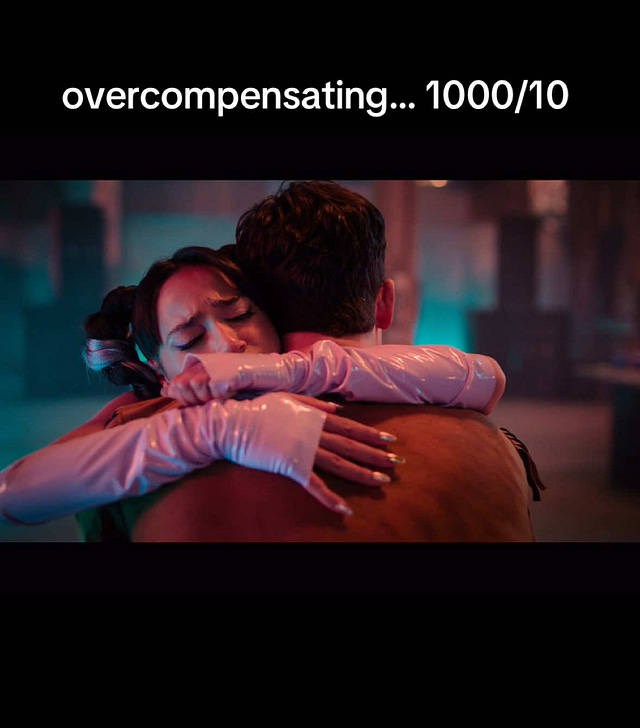
 Tiktok failed to load.
Tiktok failed to load.Enable 3rd party cookies or use another browser
But I’d also dare to say that unleashing that kid Skinner is talking about wouldn’t be possible without the quintessential loneliness of college, the pressure cooker of constant excruciating perception (or the feeling of perception, even if, really, no one is thinking about you the way you suspect they are). It’s that excess that everyone seemed to love about college in the early aughts that can make it feel like you have to always be on, that there’s nowhere to hide. So you’re forced to find those lifeboats, those people who help you catch your breath. And little by little, your life becomes filled with more of those people and eventually the voices in your head telling you that everyone is judging you — that some shameful version of you will be on full display if you don’t cover up —are drowned out by the life you’ve made with the people who get you. It’s fun watching Benny take baby steps to attaining this life knowing that Skinner is there at the finish line cheering him on. And we — viewers who were once drowning ourselves in the abyss that is late-teen loneliness — are right there with him.
B Plot
What’s your favorite college arc in a TV show?
Mallika: I have been sitting here (waiting for my Uber) for hours (11 minutes) trying to think of an answer to this question and I think I… really can’t. Many of my favorite shows have almost been ruined by the college arc. The O.C. for one, though to be fair the college arc was the least of their problems come the end of season three. Gossip Girl recovered but as much as I was okay seeing Blair Waldorf getting ripped to shreds by Jenny Humphrey or her best friend or even her mother, I couldn’t stomach seeing it done by NYU Tisch hipsters. Some of my other favorites did the smart thing and fully skipped over higher education, like One Tree Hill, which had us believing that in those short four years some pretty average high schoolers had turned into a best-selling author, basketball star and famous fashion designer. When spin-off Good Trouble picked up where The Fosters left off, the girls were already in their post-learning era. To be clear, I’ve enjoyed some in college shows (Tell Me Lies, The Sex Lives of College Girls, even Scream Queens), but going from the hallways of high school to lecture halls and dorm rooms has never worked that well for me. I’m still watching Buffy and I am loving the college transition, but I’m sure Rachel will give you more on that…
Rachel: I don’t know if it’s my favorite per say, but my TV Roman Empire might be the way that two of my most formative shows, Gilmore Girls and Buffy the Vampire Slayer, have identical series arcs. And college plays a big role in this. Let me explain… So seasons one-three of both shows, the characters are in high school (well Rory is). There are some serious plotlines, but these seasons have a cozy, Autumn kind of vibe to them. Then in season four, the shows pivot when the characters go to college. These seasons are rarely anyone’s favorite seasons because their arcs are pretty meandering: no boyfriends for Rory, and a terrible Big Bad in Buffy. But also, the seasons have some of the show’s most iconic episodes. Season four of GG gave us Emily smoking cigarettes, Luke and Lorelai big kiss!, Kirk’s night terrors. And in Buffy, we get The Gentlemen, Spike and Buffy as sparring newlyweds in ‘Something Blue’ and an iconic Faith return. The seasons are both punchier than their predecessors, showing off the writers’ comedic chops, but also weirdly are the only seasons to garner either show an Emmy nomination (Josh Whedon got a nom for writing “Hush” and GG randomly won in the makeup category for “Festival of Living Art.”) The strange season fours do kind of mirror the college experience: they’re a lot of fun, but a little unwieldy and unanchored, and ultimately they result in a much more mature season five, in which the characters are propelled into the real world and face bigger problems that result in the main character leaving college, setting up for a very dark (and controversial, but ultimately substantively good) season six. And then the shows’ season seven never really recovers from the dark, intense vibes of season six (especially as they’re burdened with a whole new crop of writers). If I had a nickel…. I’d only have two, but weird it happened twice! Moral of the story is don’t drop out of college, depressing plotlines and cancellation is all that will await you…
C Plot
Vulture’s Joe Reid thinks the Emmy’s need a reality TV performance category, saying in an essay this week that The Bachelor’s Gabby Windey’s performance on The Traitors is reason enough. We obviously agree, although Alan Cumming doesn’t need your silly awards. But we also think if this category happens, there should be some retroactive awards given out, or at least lifetime achievement! Rachel is finally on her Real Housewives of New York journey… and Ramona Singer’s constantly blinking stare needs some recognition, and honestly, give it up for Kelly ‘Jellybeans’ Bensimon’s meltdown on Scary Island. Sarah Jessica Parker gets it…
The Vampire Diaries and The Originals cast got together for the wedding of Michael Trevino, who played Tyler Lockwood. We hope everyone was sticking to toasts and vows and not considering about a(nother) spinoff… we’re begging of you, Hollywood, let us rest!
Marvel is coming out with a new TV series, which we obviously don’t care about, but we did lol at this Hollywood Reporter headline: “It’s Anthony Ramos’ Time to Play the Villain.” If you were around 2021 and care about Broadway drama, you know that it’s not Ramos’ first villain era. Where were you when the strip club/cheating video leaked? As always, it’s dangerous to be a Wife Guy…
All we’re asking is for someone to ride for this newsletter the way Seth Rogan rides for Laguna Beach and The Hills (rich of us to say after going dark for months once again… xoxo).
This coming from someone who never learned how to ride a bike is pretty rich… but sounds good, doesn’t it?




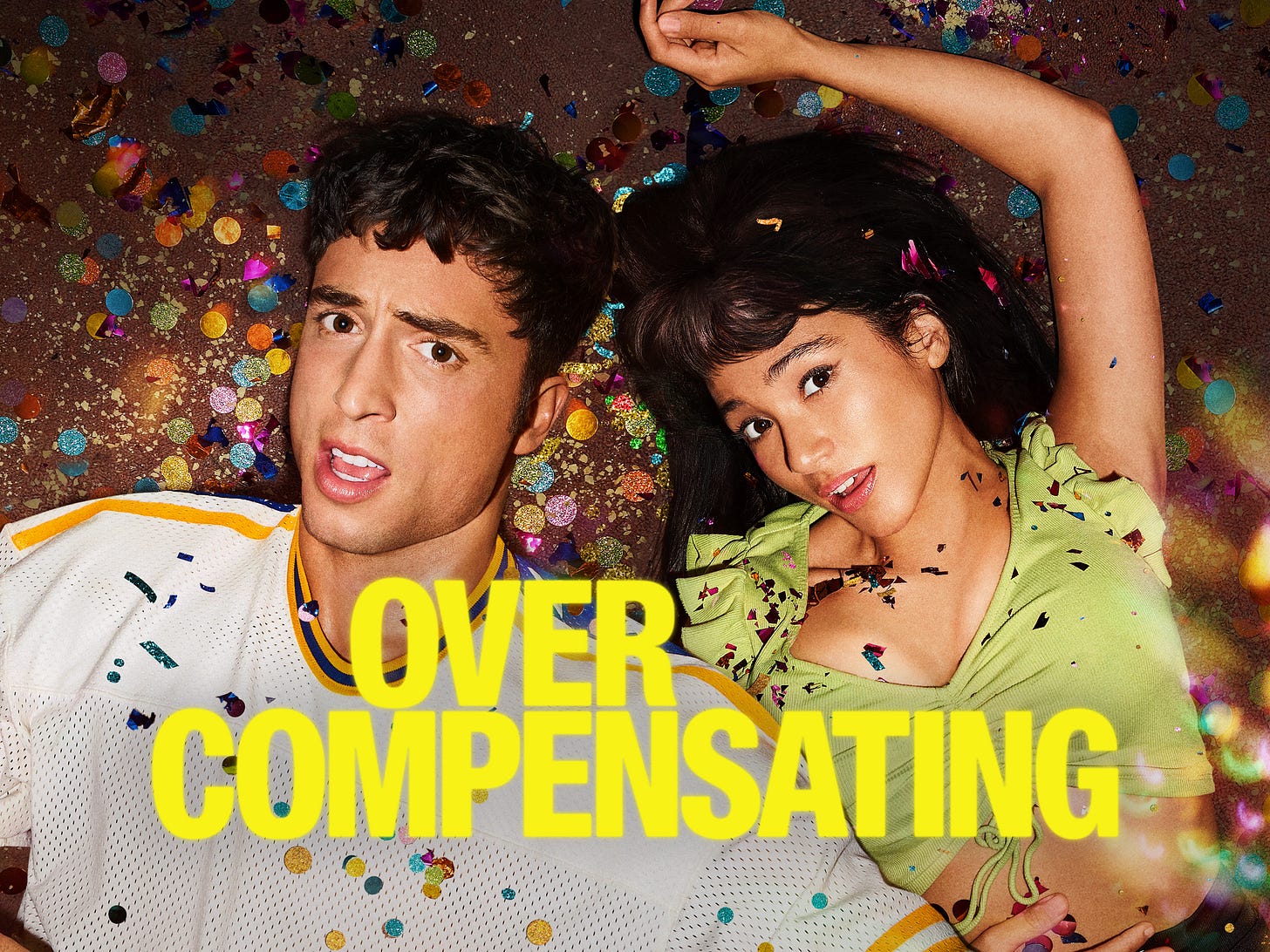
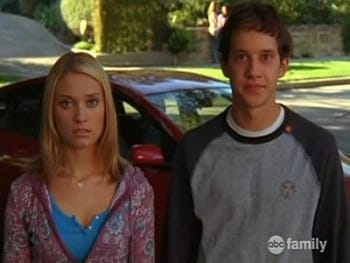
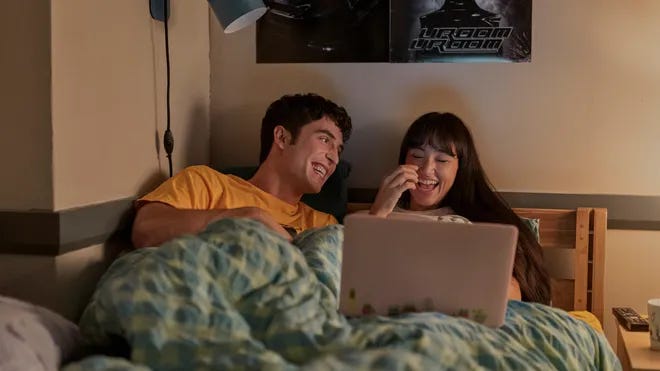



It's crazy how this show was able to transport us right back to the 2010s. The music choices and all the references you mentioned had the exact same effect on me. I really enjoyed your entire review. For me the show was relatable because of the closeted part. It's so interesting to read it was also relatable on other themes like loneliness.